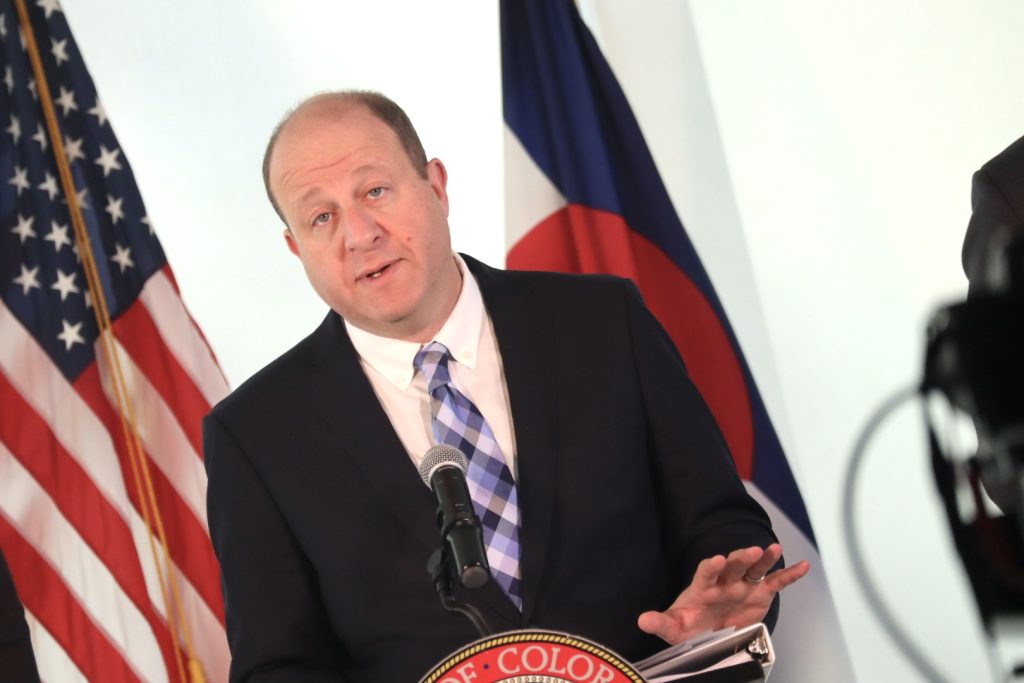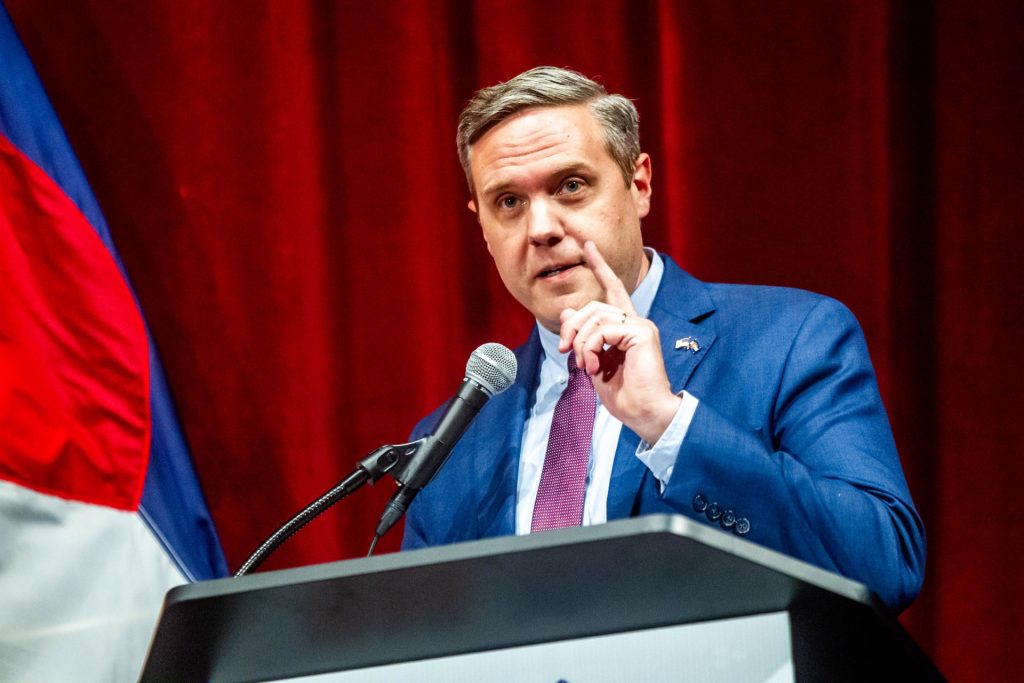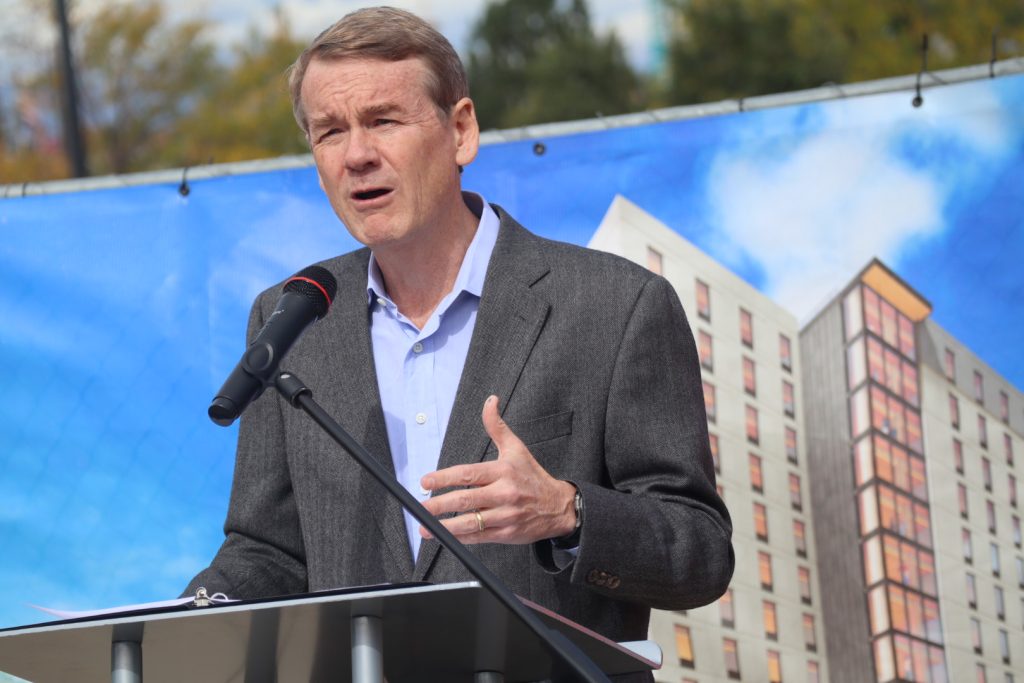Risk of higher health insurance costs for Coloradans rises after Congress fails to renew subsidies as part of shutdown fight
With no deal in sight to extend Affordable Care Act subsidies, insurance costs on the individual marketplace could surge next year

Hugh Carey/Summit Daily News archive
Editor’s note: This story has been updated with information from U.S. Sen. Michael Bennet.
Colorado leaders and health care advocates are warning that Congress has little time left to prevent a surge in health insurance premium rates next year — an issue at the heart of the federal government shutdown that began at midnight on Wednesday.
Republicans and Democrats remain opposed to each other’s government funding proposals, with Democrats wanting to include an extension of Affordable Care Act subsidies, and Republicans, who control Congress, seeking to pass a “clean” funding bill that doesn’t include those benefits.
While Republicans control both chambers of Congress — with a 219-213 majority in the House and a 53-47 majority in the Senate — the Senate’s 60-vote majority threshold for most legislation means a government funding bill has to be bipartisan for it to pass. Both parties have so far blocked the other’s funding plan from passing, which caused the shutdown.
Republican leaders have said they’re open to discussing an extension of the subsidies, but only after government funding is approved. Democrats are stressing urgency, saying insurance rates will balloon next year if something isn’t done about an extension now.
The subsidies, called the Enhanced Premium Tax Credit, are for people who shop for their own health insurance through the individual marketplace as part of the Affordable Care Act. In Colorado, the marketplace is called Connect for Health Colorado and serves around 300,000 enrollees.
The enhanced tax credits, passed by Democrats under former President Joe Biden, helped lower individual marketplace insurance premiums and were credited with driving record enrollment in recent years. But those subsidies are set to expire at the end of 2025.
Republicans have long opposed the Affordable Care Act and efforts to expand the program, saying subsidies like the enhanced tax credits are too expensive.
The Colorado Division of Insurance projects that the expiration could lead to a 28% jump in average insurance premiums statewide and a 38% increase on the Western Slope in 2026. Without a deal in sight to extend the subsidies, some say those price increases will soon be locked in.
“Republicans don’t seem to understand that in order to protect people from these huge rate increases, they need to take action now,” said Priya Telang, communication manager for the advocacy group Colorado Consumer Health Initiative.
Telang’s group has been among a chorus of health care leaders and public officials asking Congress to extend the subsidies before the end of September. That timing was critical, they said, because insurance companies typically finalize their rates in October before open enrollment for next year’s plans begins on Nov. 1.
Gov. Jared Polis in September sent a letter to all 10 members of Colorado’s federal delegation urging them to pass an extension of the enhanced tax credits before Sept. 30. Polis warned that failure to do so would result in “double or triple health insurance costs for hundreds of thousands of Coloradans.”
That’s because, while average rates are projected to jump 28% statewide, the true cost impact will be much greater for middle-income families. If the enhanced tax credits expire, it will both shrink benefits for lower-income enrollees and eliminate benefits for those making over 400% of the federal poverty line. In Colorado, that equates to $62,600 a year for an individual and $128,600 for a family of four.
Those individuals and families will experience not only higher insurance rates but a complete loss of subsidies. An analysis by the Colorado Division of Insurance shows that a family of four on the Western Slope, for example, could end up paying over $25,000 more for insurance next year as a result.
Polis renewed his calls for Congress to extend the subsidies in a Tuesday news release, which stated that federal lawmakers “would need to extend these tax credits immediately to prevent these rate hikes.”

The Colorado Consumer Health Initiative estimates that around 80,000 Coloradans could be at risk of no longer being able to afford their insurance if those price increases go into effect. Health care advocates continue to stress that rural and resort communities, which already see higher health care costs and fewer people with insurance, would be most impacted.
Health care advocates say while it’s critical that Congress still act, it’s unclear how much time is left to ward off the looming subsidy cliff. Insurers must go through a multi-step approval process with the state’s insurance division ahead of the Nov. 1 open enrollment date. Notices for new insurance plans are expected to go out in the coming weeks.
“I think it would be hard for the (insurance) division to be able to capture new tax credits in the month that we have until open enrollment,” Telang said.
Competing proposals in Congress to extend the insurance subsidies further complicate matters.
More than 130 Democrats signed onto a bill introduced at the start of this year to permanently extend the subsidies. That includes U.S. Rep. Joe Neguse, a Lafayette Democrat who represents Colorado’s central and northern mountain communities.
Some GOP lawmakers, meanwhile, have signed onto a different bill that would extend the subsidies for another year. Rep. Jeff Hurd, a Grand Junction Republican whose district includes much of western and southern Colorado, supports that measure, which is also backed by a handful of House Democrats.

As of press time, a spokesperson for Hurd’s office did not respond to questions about the status of Hurd’s bill or the timeline of passing an extension of the subsidies. In an interview last month, Hurd expressed confidence that support for a one-year extension would grow once the “reality of double-digit premium increases hits home.”
Hurd said a one-year extension would give Congress time to work out a longer-term solution to rising health care costs.
“How this exactly will work remains to be seen, but I’m certainly committed to being someone that, on the Republican side, is committed to finding a solution,” Hurd said.
Most Democrats, however, are holding out for a permanent extension, which they say will be needed for Republicans to win their vote on a government funding bill. They also want to reverse Republicans’ cuts to Medicaid that were passed this summer as part of any funding deal.

Sen. Michael Bennet, a Colorado Democrat, defended his party’s shutdown strategy during a virtual call with reporters on Wednesday, framing it as a fight for health care.
“When you think about the Trump administration’s one-two punch here — first, they cut Medicaid as part of the ‘big, beautiful bill, and then they follow that by putting a budget on the Senate floor that doesn’t extend these tax credits,” Bennet said. “That is going to create a huge amount of misery in Colorado and all across the country, and I think this is a fight worth having.”
Asked if he’d be open to a one-year extension of the tax credits, Bennet said he’d “like to make it as long as possible.”
“When we see the potential in Colorado, especially in rural Colorado, for increases as much as 300%, I don’t know why we wouldn’t use this as an opportunity to try to extend those credits as long as we possibly can to give the American people, and their families, as much predictability as possible,” Bennet said.
State Democrats in Colorado, as part of a special legislative session in August, passed a stopgap measure that will bolster funding for state-level subsidy programs to protect insurance for around 20,000 people on the individual marketplace next year. That will only go into effect, however, if Congress does not renew the enhanced tax credits.

Support Local Journalism

Support Local Journalism
As a Summit Daily News reader, you make our work possible.
Summit Daily is embarking on a multiyear project to digitize its archives going back to 1989 and make them available to the public in partnership with the Colorado Historic Newspapers Collection. The full project is expected to cost about $165,000. All donations made in 2023 will go directly toward this project.
Every contribution, no matter the size, will make a difference.










